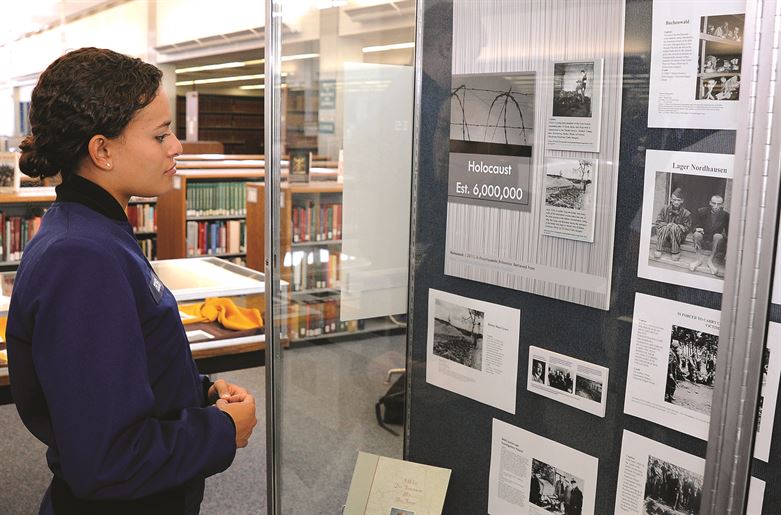The United Nations released today a guide on fighting anti-Semitism in education.
 UNESCO and the Organization for Security and Co-operation in Europe, the OSCE have jointly developed a policy guide, entitled “Addressing anti-Semitism through Education – Guidelines for Policymakers”. The policy guide suggests concrete ways to address anti-Semitism through education, within a human rights framework. It also provides policy-makers with tools and guidance to ensure that education systems build the resilience of young people to anti-Semitic ideas and ideologies and all forms of intolerance and discrimination.
UNESCO and the Organization for Security and Co-operation in Europe, the OSCE have jointly developed a policy guide, entitled “Addressing anti-Semitism through Education – Guidelines for Policymakers”. The policy guide suggests concrete ways to address anti-Semitism through education, within a human rights framework. It also provides policy-makers with tools and guidance to ensure that education systems build the resilience of young people to anti-Semitic ideas and ideologies and all forms of intolerance and discrimination.
The launch event of the new policy guide took place at UNESCO Headquarters, in the presence of Audrey Azoulay, UNESCO’s first Jewish director general and ODIHR Director Ingibjörg Sólrún Gísladóttir. The presentation of the guide was followed by a panel discussion of young change-makers and leaders on the theme “How can policymakers ensure an effective role for education in addressing anti-Semitism?”
Anti-Semitism is a security issue for Jewish communities and individuals in regions across the world and the driving force of a range of violent extremist ideologies. Like all forms of intolerance and discrimination, anti-Semitism has a profound impact on the whole of society, undermining democratic values and human rights. In recent years, the changing geopolitical climate and media environment have led to a situation where open anti-Semitism is no longer confined to extremist circles and has become increasingly mainstreamed.
International organizations and national authorities in several countries have developed comprehensive approaches to address the challenge. Despite this, preventing anti-Semitism through education and addressing its manifestations in education environments remains a challenge for policy-makers and educators.
To respond to these challenges, UNESCO has integrated addressing anti-Semitism through education into its activities related to the prevention of violent extremism through education and the promotion of global citizenship. To strengthen these efforts, UNESCO collaborates with the Organization for Security and Cooperation in Europe (OSCE) Office for Democratic Institutions and Human Rights (ODIHR) in the framework of ODIHR’s project “Turning Words into Action to Address Anti-Semitism”. UNESCO contributes to the educational dimension of the project with a view to equip education policymakers with guidelines on this issue. UNESCO and ODIHR work together to identify gaps and promote effective practices, key policies and pedagogies to address anti-Semitism through and in education.


























